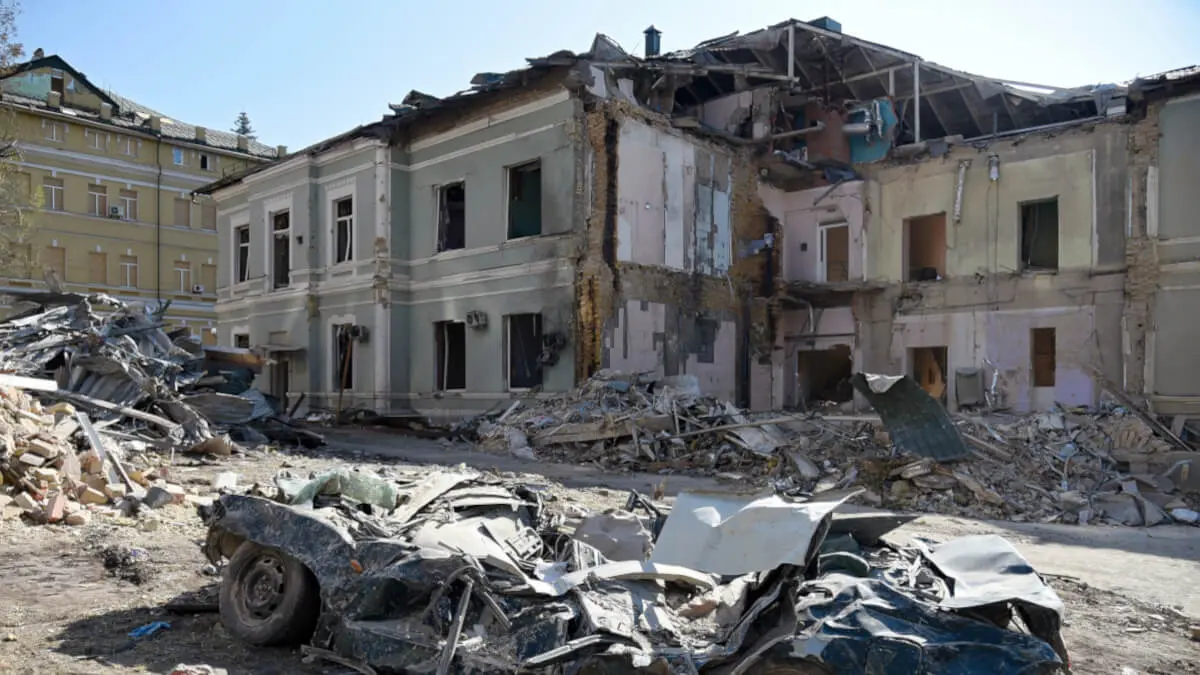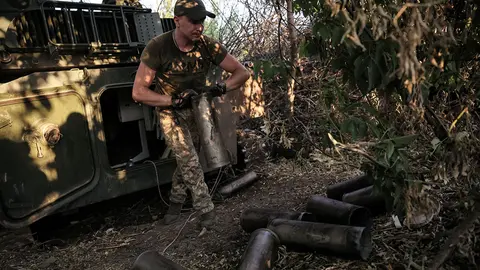Quo Vadis Europe

The belief that this was the beginning of a new era in which conflict and armed confrontation could become a thing of the past swept the globe. And for a short time, the mirage almost seemed real. The parts of the world still ravaged by war were far away, and our society was oblivious to the pain and suffering caused by the spectre of war.
However, that reverie was short-lived. In the early 1990s, as a direct consequence of the debacle in Eastern Europe, the fragile union of territories that made up the Republic of Yugoslavia, once free of the Communist yoke, collapsed into a war of a cruelty unknown in Europe since the end of the Second World War.
The hope of ‘perpetual peace’ was dashed and the Old Continent realised that the only way to achieve peace was to impose it. As I read not long ago from an acquaintance: ‘Peace is not kept, peace is imposed’. And after the longest period of peace, development and progress ever known in this corner of the world, and despite events such as the Balkan war, our dear old Europe seems to have forgotten this reality.
And the most serious thing is that this forgetfulness may have irreversible consequences. If Europe wants to play a relevant role as an entity, something that has not happened so far, it must assume its responsibility and the consequences of such a role.
There are several hotbeds of tension and flashpoints of confrontation around us. And each and every one of them has implications for Europe. It is obvious that the war in Ukraine is the epicentre, but it is no less certain that what is happening in the Sahel, despite what most people think, will affect us more seriously in the medium term.
The war in Ukraine is now in its third year, and the EU's role has left much to be desired. This conflict has exposed the serious defence shortcomings of the Old Continent.
This inadequacy is neither a minor issue nor a recent one, and the progressive dismantling of the defence industry has had as its first consequence the inability to react properly when we were most needed, having to turn again to the omnipresent United States of America. And that fact has put us in front of the mirror of our own good intentions.
The idyllic world we imagined is no such thing, and the good-naturedness that has permeated us to the core can take its toll. The need to help Ukraine in the face of Russia's infamous aggression has forced a large number of European countries to empty some of their ammunition stocks to prevent Moscow from achieving its goals, but even so it has not been enough and Ukraine remains in a very complicated situation.
The problem we now face is the need to replenish what has been sent to the East, and the situation of weakness we may find ourselves in until not only what has been consumed is replenished, but until acceptable levels are reached (it goes without saying that the levels prior to the Russian invasion are not an adequate benchmark). But it is not just a problem of ammunition and equipment stocks that has been uncovered. The problem goes much deeper. It is a problem of the size of the forces available, of training, of critical materiel, and most seriously, of mentality. Even seeing how the massive use of drones has changed the battlefield, there is no indication of an agile and concrete intention to evolve.
Predicting how the situation in Ukraine will evolve is very complicated, there are too many factors, both internal and external, influencing the conflict, and unfortunately for the Ukrainians, what happens does not depend solely on their determination to defend what is theirs.
But as has already been said, there are more fronts to which Europe must turn its attention. And the main one is to the south. The situation in the Sahel is getting worse by the day, and the EU seems to have thrown in the towel, ceding a space that inevitably had to be occupied by someone, and it is Russia that ‘happened to be there’, seeing the perfect opportunity to take sides in the region, not only because of its access to strategic resources that it can deny Europe, but also because of its enormous capacity to influence the Old Continent thanks to its presence and roots in this convulsive region. The problem that no one seems to realise is that when we decide that we want to intervene in Africa to protect our security and stability, we will have to do so by confronting the interests of those who have already established themselves there, namely Russia. And it may be that the confrontation we have tried to avoid in the East will have to be confronted on our southern border - a paradox indeed.
Similarly, other conflict scenarios are not alien to us, and yet either we behave as if this were the case, or worse, we adopt positions that are difficult to understand, as in Israel's war against the Iranian ‘proxies’ operating on its borders.
Stability in that part of the world is key to our well-being, and thanks to the Abraham Accords, scenarios and possibilities were opening up that were impossible to imagine until a couple of years ago.
These agreements were a blow to Iran's waterline, the main distorting element in the region. Any movement towards stability necessarily involves diminishing Tehran's capacity for influence. We speak in these terms because today, a fall of the ayatollahs' regime is neither foreseeable nor feasible. And yet, we are still witnessing positions closer to the aforementioned ‘proxies’ than to Israel, forgetting by the way that those who act as sponsors of these terrorist groups (as the EU recognises them, although sometimes it may not seem so), are in turn supporting Russia's war effort against Ukraine, something which, in case anyone had missed it, they do with the petty intention of contributing to the erosion and destabilisation of Europe.
As we can see from this brief overview of the three main current crisis hotspots, they all affect us and all have communicating vessels. And surely, if we were to add others to the list, we would discover the same. The way in which each of them is resolved will affect us irremediably, and the consequences may be irreversible. This is why it is necessary that, once and for all, Europe understands that it must take a stand to defend its interests and do so without complexes and without fissures.
It is precisely the difficulty of adopting common positions that is our greatest weakness, and our enemies know this and are exploiting this fissure. Sooner rather than later, we will probably find ourselves at the moment of making tough decisions and making sacrifices that we have renounced for the last eighty years, and we must understand that it is precisely this renunciation that has led us to the current situation. Provided, of course, that Europe accepts the future it wants and decides to fight for it. If it does not, then it just has to let go and do. Others will make the decisions that will shape the world our children will live in or suffer.



